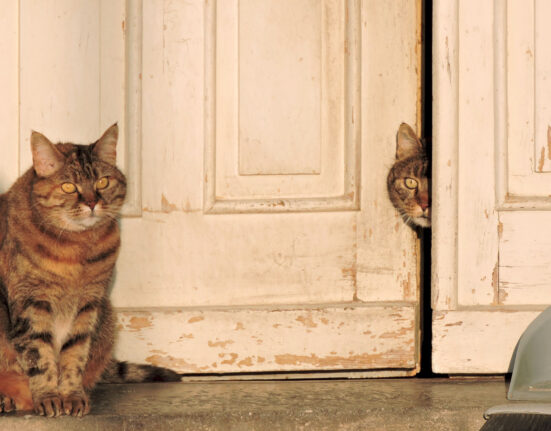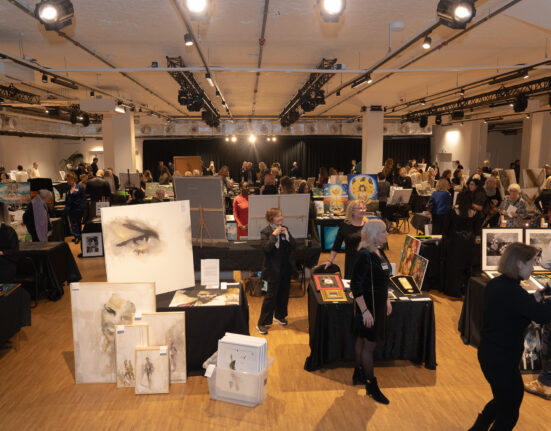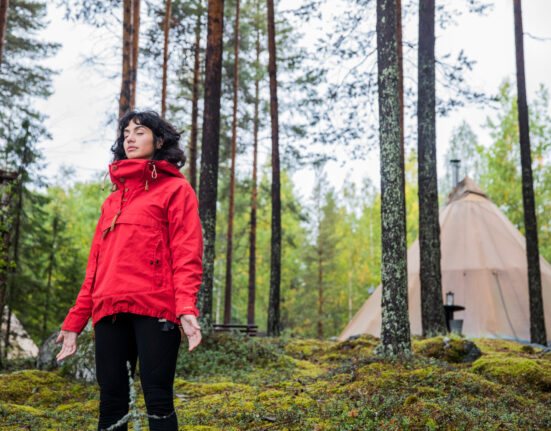This week YLC’s mental health expert Lysanne Sizoo discusses how our sense of identity is challenged when we move to another country… and how we can use it to our advantage.
 Photo: Marko Kudjerski/Flickr (file)
Photo: Marko Kudjerski/Flickr (file)
Have you noticed that the way in which you introduce yourself to others has changed since you moved abroad? Where before you might have used your professional identity as an icebreaker, you now may present yourself through your nationality.
We have the ability to choose from a whole range of internal business cards, matching the right one to our particular environment. In varying situations one person may be introduced in multiple different ways. A fictional character, Susanne, may be “Susanne, Timmy’s mom”, “Susanne, the professional trapeze artist” or “Susanne from Guatemala”, depending on which aspect of her identity is most relevant in helping her to identify with a specific person or group. This need to find common ground with others is deeply ingrained in the human psyche; we read the situation and adapt accordingly.
Home is where the heart is
Our core family is the first ‘group’ that we ever belong to, and so the way we adjust our sense of self is very much dictated by how welcome we feel. The totality of our self may be generally warmly received, but the specific characteristics that make up who we are, are received selectively.
Even as children, we are skilled at picking up on subtle messages, coming to the realisation that there are some aspects of ourselves that certain people like or dislike and we play up our ‘positive’ traits in order to benefit ourselves.
For example; Mary* was, by nature, shy and quiet; not typically the life of the party. She was born into a loud, rumbustious, and socially gregarious family. From here, one of two things could have happened:
1) Her shyness was recognised as a part of her and her reticent nature was accepted and not judged. At the same time she benefitted and learned from the outgoing nature of the others, on her own terms.
2) (and this happens more often) her family found her personality embarrassing and pushed her into being less reticent. Over time, Mary buried her true self and adopted a loud and gregarious self that could hold its own within her family structure. In essence, she had developed what we call an adjusted self, a version of herself that she didn’t think was anything other than her true nature.
Who, me?
By the time we’re of school age, we’ve built up a bundle of selves that are both genuine and adapted. And so the process continues, reinforcing and sometimes weakening this increasingly adaptive structure that we think of as ‘me’. Sometimes insightful teachers or loved ones might ‘see beyond’ the façade of our multiple created identities and encourage us to nurture our core selves, other times our adapted selves are built on and extended, just like a house, until the new exterior totally masks the original structure; this is the price we pay for being not just conscious, but self-conscious.
Out of bounds
During puberty, somehow, with the most self-reflective part of the our brain undergoing a total overhaul, we become courageous and try out new or suppressed identities which challenge and create our boundaries. As adults, we can choose to remain well within our comfort zone, or push our limits. Quietly living our lives within the comfort zone of our recognised façade is what many people consider a ‘good life’. And who are we to question that?
But sometimes we actively want or need to push our boundaries.
Moving abroad means that all of a sudden the façade that met the needs of your primary environment, is not reflected back at you in the same way under your new circumstances.
Our need to feel like a part of society means that we begin to think that if we can’t beat them, then we should join them and in joining them we antagonise over whether we will have to let go of or ‘lose’ a part of what makes us who we are. And this inner dilemma is partly what constitutes the cultural identity crisis that almost all expats go through at some point.
Workin’ it
Let’s return to Mary. In the past, she was pushed into developing a socially engaging, loudmouth self so that she could ‘belong’ in her family. Now, having just had a baby, she has joined the local mamma-group. There she is, surrounded by friendly, if somewhat reserved, Swedish women (yes, I am well aware I am generalising here, but bear with me for the sake of the illustration). Try as she might, Mary can’t draw them out or get them to engage in out-of-the-box observations on the pitfalls of motherhood.
They nod politely, say “Ååå” and continue talking about less dangerous subjects. As much as Mary tries to engage, identify and belong, her personality is being rejected by this group of women.
On the flip side, Mary is now in a position to explore the parts of her self that she had swept under the carpet; parts that often respond actively to seeing themselves reflected in others. But because in her past being reserved was seen as ‘not normal’, her first reaction is defensiveness. Over time, however, she allows her shyness to come to fore, and begins to enjoy being with people who were equally as happy to sit in silence. And so, Mary has learned a new social skill-set that she can utilise at will: the ability to highlight and lowlight different parts of her personality depending on her audience.
Summary and self-reflection
As we mature, we develop an identity that meets the expectations of our primary group, the family. Some intrinsic personality traits are kept and others are sent backstage while an adjusted self is created. During our preteen and teenage years, this structure is malleable and can either be reinforced and built upon, or our perhaps more authentic, suppressed selves can be brought to the fore.
When we move abroad, the structure we have built for ourselves in order to fit in is no longer mirrored back to us in the same way, as other countries and cultures hold different values to our own. Where outgoing personality traits are valued in one culture, reservation might be valued in another. This creates an inner dilemma that challenges us and our defense mechanisms, but at the same time this situation can be seen as an opportunity to become balanced and whole.
Moving out of your comfort zone will always trigger new aspects of yourself to come forward. It will also bring with it a renewed attempt at shoring up the defenses. But one has to remember that it’s the balance of opposites, the ability to choose which aspects of self you want to utilise, that makes life fun.
As one of my teachers said, “just doing the opposite of what you’ve always done before is still being stuck.”
So here’s a challenge: Name something you criticise/fear/judge/reject most in the new culture you find yourself in (be it Swedish, International, or a even a new work environment). Sit with it for a while and then ask yourself: is a part of what I resent in this specific culture actually something that I’ve repressed in myself? The answer may surprise you.
*Lysanne teaches a ‘Global Identities’ workshop, both in Stockholm and in The Hague. Contact her if you would like to take part in one of the upcoming workshops.
**Mary’s story is made up for the purposes of illustrating the process.
Copyright 2013: Lysanne Sizoo
Lysanne Sizoo
DISCLAIMER
These articles are a composite of my personal, my colleagues’ and
clients’ experiences in order to protect recognition. All therapeutic
meetings are Turning Point are confidential, and specific content would
never be shared in a public forum.
If you have any specific problem that you would like Lysanne to consider in her articles, please contact her here (anonymity will always be preserved).
Lysanne Sizoo is the founder and director of Turning Point, the only international counselling centre in Stockholm. In 2008 she obtained her psychotherapy license from the United Kingdom Council for Psychotherapy. She has been practising as a counsellor and psychotherapist since 1997, specialising in the field of cross cultural issues, as well as fertility, bereavement, parenting, anxiety and stress management.













1 Comment